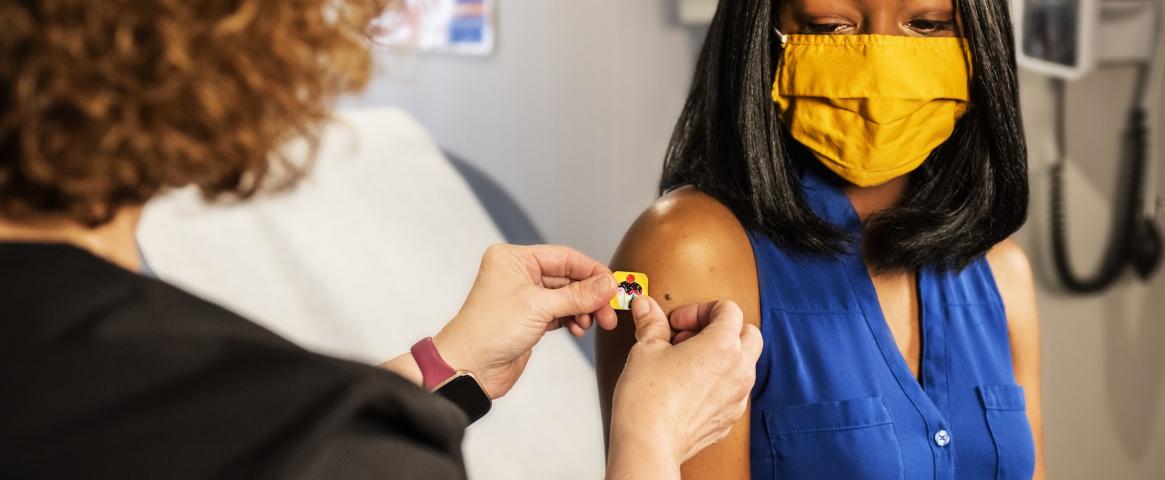By Christina Lam
At a time when black and brown Americans are dying of COVID-19 at much greater rates than whites, it is more important than ever for scientists to gain the trust of minority communities by doing a better job of listening to their concerns and involving them in scientific research, researchers at the American Association for the Advancement of Science (AAAS) annual meeting on February 10 said.
“Far too often…science has not only silenced but also oppressed [African American] communities,” said Robert Turner, a theologian and pastor from Tulsa.
This history continues to erode the trust of African Americans, many of whom remain skeptical about the COVID-19 vaccine. To restore their trust, researchers at this panel suggested restructuring the way schools teach science, creating a more diverse pool of scientists, and doing a better job of listening to the concerns of minority communities.
As one example of when science was used to harm minority communities, Turner mentioned the Tuskegee experiment, a 40-year-long study when African men were purposely infected with syphilis without their knowledge. The men were under the impression that they would receive free healthcare in return for their participation. However, they were never adequately treated even when an effective treatment became available.
Henrietta Lacks, an African American woman who had cervical cancer, was another example. When Lacks visited Johns Hopkins hospital in 1951, a researcher collected cells from her tumor, which eventually became the first immortalized human cell line and were widely used in cancer research. Lacks, however, gave no consent for the extraction and her family was not aware of this until 1975. The doctors at John Hopkin hospital treated Lacks with radiation but did not inform her that the treatment would make her infertile. She died nine months after her diagnosis.
Dr. Jada Benn Torres, a genetics anthropologist at Vanderbilt University, emphasized the importance of broadening university students’ understanding of how scientific progress is made. Textbooks often portray significant breakthroughs as isolated events and credit them to specific white male scientists, resulting in a very distorted history of science, Torres said, noting that the science curriculum frequently excludes contributions made from others “who were not the right color, sex, or gender.” Findings from black scientists are often deemed as less important and ignored.
The United States must also create a more diverse pool of scientists. “It is important to marginalized communities to see that they are represented in the lab in some ways,” Torres said. “To see someone that looks like them doing the work, it gives them some reassurance that [the scientists] understand what the work means to the [community].”
Scientists should actively engage with marginalized communities. Instead of viewing them as experiments and “a mean to an end,” scientists need to remember their work does not exist in a vacuum but in relation to the history of these communities. For example, in 1921, mobs of white residents attacked black residents in the Greenwood district of Tulsa. The riot left many victims homeless and destitute. Although the exact number is unknown, the death toll is estimated to be as high as 300.
Panelists also advised scientists to practice “cultural humility” by recognizing the power dynamics between researchers and their subjects. Before scientists enter a community, they should not assume that they understand a community’s culture until they engage with its members. They should actively involve the community throughout the study and acknowledge their contribution at the end.
“Funding institutions need to recognize that scientists need the time and resources to build trust and relationship [with these communities]. They can’t just enter the space, collect samples, and leave,” said Torres.
Christina Lam is a Ph.D. candidate at the University of Toronto. Her research focuses on improving tolerance in solid organ transplantation. She is also a writer and copy editor for the Varsity, University of Toronto’s student newspaper. You can reach her at chr.lam@mail.utoronto.ca.
This story was edited by NASW member Alison Bass, who served as Lam's mentor during the NASW-AAAS Spring Virtual Mentoring Program.




